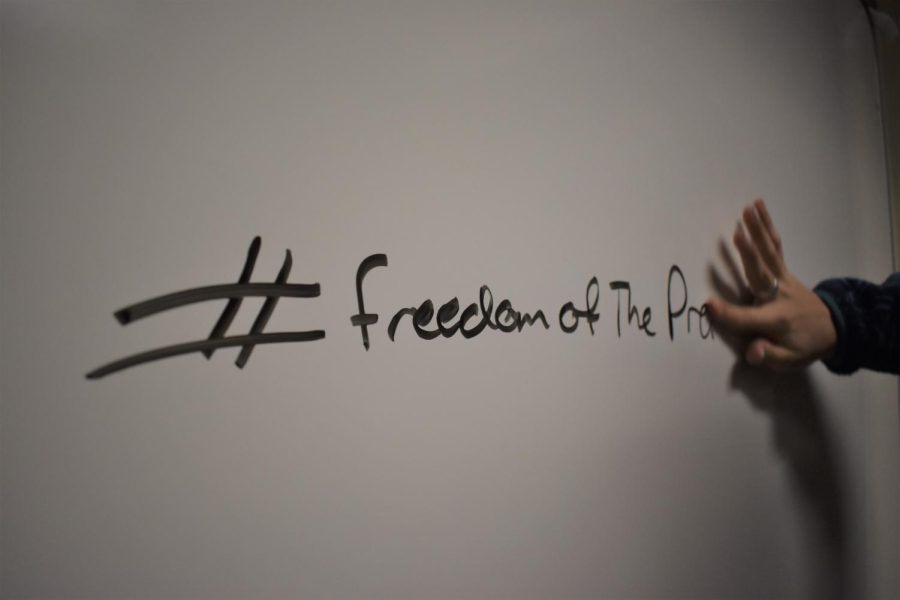Freedom of the press is part of the First Amendment which protects journalists from repercussions for speaking out.
The Reactions
How one article at Regis Jesuit High School has incited controversy over student expression.
Roughly a month ago, Regis Jesuit High School retracted a pro-choice article from their student-published Elevate magazine. The action, supported in a letter by the Denver Archbishop and driven in part by parent complaints, according to sources inside the school, stirred controversy among students and the public alike.
Now, it is clear that as a private, religious high school, Regis is bound to the Catholic Church but not to the First Amendment. The school is legally allowed to censor students and their publications. But the question remains: was it an appropriate way to handle the situation?
According to an outpouring of controversial opinions — from former students to fellow Colorado student journalists to current students and a multitude of others — there is not a clear-cut answer.
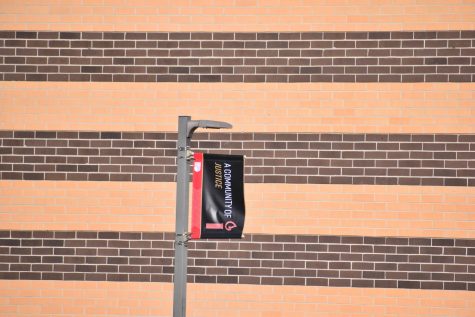
“My thought was if this was a public school, not a private school, they wouldn’t be able to do this because Colorado has a law on the books that gives extra free speech protections [and] First Amendment protections to student journalists,” said Jeff Roberts, Executive Director of Colorado’s Freedom of Information Coalition, which is a nonprofit seeking to educate Colorado journalists and citizens of their rights under open government laws. Roberts is also a former reporter and editor for The Denver Post. But because the school is private, the laws do not apply. And so a different agenda drives decisions.
“There is a different level of pressure on private institutions, and even more so on religious ones, to uphold certain values,” said a senior at Regis. Though he affirmed that the school has not in any way threatened students who speak out about the situation, his name has been withheld due to an abundance of caution.
“I have heard both from students and faculty that these actions [by the school administration] were related to pressures from the Archdiocese of Denver…If the Archdiocese did not approve of Regis’ actions or the values they express, they could essentially make it so that Regis is no longer a Catholic school.” It is his view that the school administration had very little choice in retracting the article considering the religious pressure — particularly combined with parental complaints — received following the article’s publication.
Yet, what has ignited the most backlash was not necessarily the retraction itself. In the original article published by The Sentinel, sources confirmed the firing of two advisors overseeing the student magazine.
“As Regis is a Jesuit Catholic school, I understand retracting the article to “put out our Catholic beliefs,” although I think that as an opinion piece, they should’ve left it but maybe with an opposing side to the argument,” said a Regis junior. “I think it’s absurd that they fired the two mentors of the magazine that were just trying to make sure that students could speak their own mind.” This student said she only became aware of the incident when an email was sent out from the administration with a letter from the Archbishop. “The letter was very much scolding Regis,” she noted. The religious pressure was undoubtedly overt, obvious to administration, parents, and students alike.
“Regis is definitely a really strict school when it comes to their beliefs and teachings,” said Eaglecrest junior Nia McKenzie, who transferred from Regis Jesuit last year. “It is Catholic, so they have a really set mindset on the way that things are supposed to be taught and the way that you’re supposed to think.”
In her time at the school, McKenzie noted the way that anyone who was too different inevitably felt unwelcomed — or at the least not as comfortable. “A lot of people got made fun of because they were gay or they weren’t the same and even in the church, they didn’t really feel welcome.… I feel like they have a really boxed mindset,” added McKenzie. To release a pro-choice editorial into this environment, thus was perhaps akin to dropping a lit match into gasoline.
But the repercussions of the school’s decision to retract the article and fire the two advisors has had a dramatic effect on the school itself. “The student-administration relationship has been fractured, along with the teacher-administration relationship,” said the same Regis junior. “Everyone fears that they will be punished for having a belief that doesn’t coincide with the Catholic Church.” She says that some of her teachers have expressed not feeling safe anymore in encouraging students to discuss potentially controversial topics — which undoubtedly would hinder the level of education Regis appears to uphold.
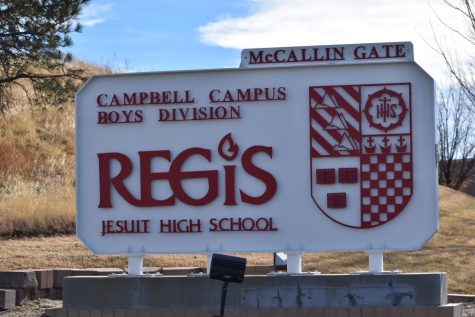
There have been a variety of student reactions as well, said our junior contact. Some are considering transferring, and some are seeking to confront administration, while others have already taken action, with media students withdrawing from the program. The unease may, however, be amplified among staff, whose job security remains on the line.
“A third teacher quit her job, I believe as a result of anger over the firing of her two colleagues, as well as a build-up of stress because she had to take over some of the classes that the fired teachers were previously responsible for,” said the Regis senior. “Whether pro-life or pro-choice, nobody is happy that the teachers were let go and the impact that has had on the school environment.” The firing of two advisors has thus put a notable strain on student-administration and faculty-administration relationships.
“I just feel really bad for all of the teachers that they had to be put into this position, and I hope they know we don’t have anything against them,” added the junior. “The line had never been firmly drawn on whether students were allowed to publish opinions that directly conflict with the Catholic Church, and it definitely gave everyone a shock.” In fact, the line had been so unclear that two former Elevate editors — now Regis Jesuit alumni — called out the school’s inconsistent censorship in an editorial published in The Denver Post.
They explain that an opinion editorial positively portraying Roe v. Wade was published in their time at the school and the school maintained openly published editorial policies until this week. Undoubtedly, such censorship restrictions are akin to a noose tightening around Regis Jesuit’s student media. But limitations on student expression are nothing new for the school, according to former student McKenzie.
“That’s part of the reason why I left that school,” said McKenzie. “It wouldn’t let me express who I really was or people wouldn’t understand where I was coming from fully. They would try to understand but they would never fully process it.” In this way, student perception plays a large part in shaping schools. McKenzie did not feel she could express herself properly, and so she left, which changes the school’s numbers, funding, and environment. With one person, it may not be a notable change, but those numbers can add up quickly.
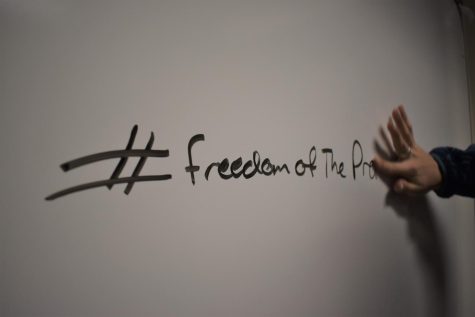
“Students know what’s right and what’s wrong,” said Colorado Student Media Association Advocacy Coordinator Ben Reed, who also serves as a student media advisor at Monarch High School. “Students know when things are just and when things are unjust. And without the First Amendment and without the Colorado Student Free Expression Law, students wouldn’t be able to have the power to call those who have the authority out on the table when that needs to happen. And it’s a power that no one else in the school has…that’s power that shouldn’t be taken for granted.” Although CSMA itself has not taken an official stance on the situation at Regis Jesuit, Reed explains the impact student journalism can have when it is protected. Private schools like Regis, however, are not afforded those same protections as public schools –including the First Amendment protections.
“The First Amendment allows people to have their own thoughts, to express their own thoughts and to bring about change within society in a beautiful and meaningful way,” said Reed. The First Amendment affords citizens freedoms of expression, protecting from fear of repercussions if they choose to speak out. This principle is intricately woven into the fabric of our democracy.
“Without the First Amendment, we wouldn’t be able to hold our leaders in check, we wouldn’t be able to hold our leaders accountable for decisions that they make. And that is one of the jobs of the press within a school,” said Reed. He emphasizes the unique power and responsibility of student media to call those in power into check when necessary. Student media also allows a unique form of expression. So despite that this situation occurred at a private religious high school, that students are not comfortable with self-expression as a result should be a cause for concern.
“All American schools should be committed to promoting democracy. The press is a corollary of democracy, and opposing it discourages students from participating in the democracy that guarantees the freedom of religion,” wrote the two former Elevate editors in their editorial. “All schools should be committed to effective education. The free sharing of ideas is the cornerstone of education. When students are sequestered to echo chambers, they cannot encounter diverse viewpoints.” This point rings especially poignant when considering that the very students in school right now will one day be the leaders within our nation.
“The points that they’ve made are points that the student journalists probably are making at the school,” said Roberts in response to the Denver Post article. “If they’re going to teach about the First Amendment, even though it’s a private school, those lessons perhaps should reflect what also happens with the student newspaper there.” In fact, the former Elevate editors describe learning about Tinker v. Des Moines, a prominent journalism case that afforded public school students greater freedom of expression. So it seems the first amendment and student expression rights have been taught at Regis — just maybe not put into practice.
“One of the things that a student publication is doing is teaching students that their voices are important and that they matter and teaching students to own their own voice,” said Reed. “In a private school, families make different choices of what school they want to be able to send their children…And those choices are going to have big impacts on students and their lives.” Indeed, by choosing a private school, parents are making a conscious decision to release their children from the protections of freedoms that public schools comply by.
This procures a unique predicament because the students themselves do not necessarily consent to this; it is, ultimately, their parents’ decision. Yet — depending on a private school’s editorial policies — students are the ones who would suffer the consequences of speaking out. If a court case was made like in the case of the Tinkers, the student’s name would be on the case, as Reed pointed out. If there were restrictions implemented for the media department, students would likely feel it most.
“If students feel some type of way, they should be able to express it,” said McKenzie. “And I feel like even if you are a private institution, it shouldn’t be your job to tell them whether to write or not to write an article because if you’re so big on creating students that have that diverse way of thinking, then why are we retracting articles about pro-life? If the students feel strongly about that, they should be able to express that. I don’t think they should have the right to tell them whether or not they should publish something in an article.” As she explained, the lack of freedom to self-express contributed to McKenzie’s school transfer. For other students, the censorship makes a bit more sense.
“I do understand why, in some cases, schools may want to censor publications,” explained the Regis senior. “With that being said, I think no person should be stripped of their freedom of speech, press, or expression, and think that schools doing so have nothing but negative impacts.” And it seems this may be accurate. So far, most reactions to the incident have been negative.
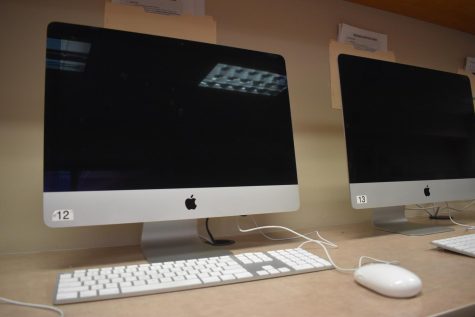
“Being able to express your opinion as a student journalist is your right,” said Reed. He explained that this right is guaranteed by the Colorado Student Free Expression Law — a rare protection. “Colorado is kind of an exception to the norm as far as laws for student journalists. Less than half of the states have this sort of protection for students,” explained Reed. The Colorado Student Free Expression Law grants student journalists all the same rights as professional journalists, and it was recently amended in 2020 to protect advisors from punishment from school administration — like being fired — when they give their students the freedoms afforded them by the law. It gives protection to a powerful tool.
“Through my years of being an advisor, I’ve seen student journalists speak truth to power. And I’ve seen it result in positive change for the school community. You have to be doing it for the right reasons. You have to have your facts in order and you have to make sure that everything that you’re trying to do makes sense,” said Reed.
Reed mentioned a quote from former Representative John Lewis: “I want to see young people in America feel the spirit of the 1960s and find a way to get in the way. To find a way to get in trouble. Good trouble, necessary trouble.” It is this necessary trouble that drives journalism at times. And it is this necessary trouble the recent issue of Elevate magazine has incited — beginning a necessary conversation surrounding student journalist rights even in private, religious high schools.
“I think that getting in good trouble is sometimes important to do,” said Reed.
